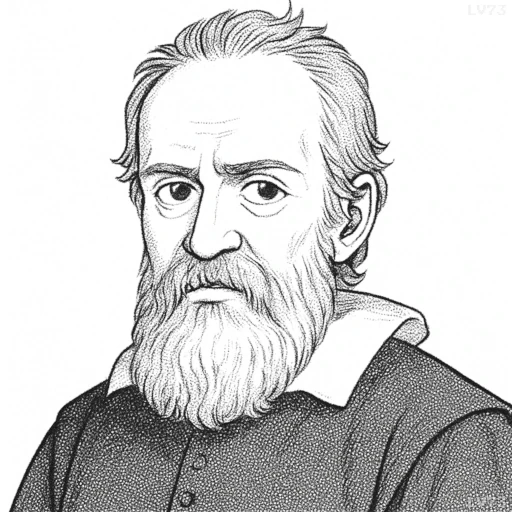“I think that in the discussion of natural problems we ought to begin not with the Scriptures, but with experiments, and demonstrations.”

- February 1564 – January 8, 1642
- From the Duchy of Florence (Italy)
- Physicist, astronomer, mathematician
table of contents
Quote
“I think that in the discussion of natural problems we ought to begin not with the Scriptures, but with experiments, and demonstrations.”
Explanation
In this quote, Galileo advocates for the primacy of empirical evidence and the scientific method in understanding the natural world. He argues that when confronting questions about nature, we should start with observable experiments and demonstrations—the tools of science—rather than relying on religious texts or theological interpretations. Galileo’s statement reflects his belief that the laws of nature are best discovered through observation, experimentation, and reasoning, rather than starting with assumptions based on doctrine. During his time, the Church held great authority over knowledge, and many natural phenomena were explained through Scripture or religious doctrine. Galileo, however, championed the idea that the truths of nature are independent of religious belief and can be revealed through direct inquiry into the world around us.
In modern times, Galileo’s words continue to resonate in the context of scientific inquiry. The approach of using evidence-based reasoning to solve natural problems remains central to the scientific process today, whether it’s in the fields of medicine, climate science, or astronomy. For example, the global response to health crises, like the COVID-19 pandemic, demonstrates the importance of data, experiments, and peer-reviewed research in guiding our understanding and decisions. Galileo’s emphasis on experiments and demonstrations over preconceived beliefs is a call to ensure that science is guided by evidence, not by ideology or tradition.
This quote also reflects a broader philosophical argument about the relationship between faith and reason. Galileo’s approach suggests that science and religion serve different purposes, with faith guiding moral and spiritual questions, while reason and experiment provide the means to understand the physical world. In today’s debates about issues such as genetics, evolution, or climate change, Galileo’s statement is a reminder that scientific reasoning and experimentation should lead our understanding, even if they challenge or conflict with traditional interpretations. It encourages the separation of religious doctrine from the objective pursuit of natural truths, allowing science to progress without the constraints of dogma.
Would you like to share your impressions or related stories about this quote in the comments section?

